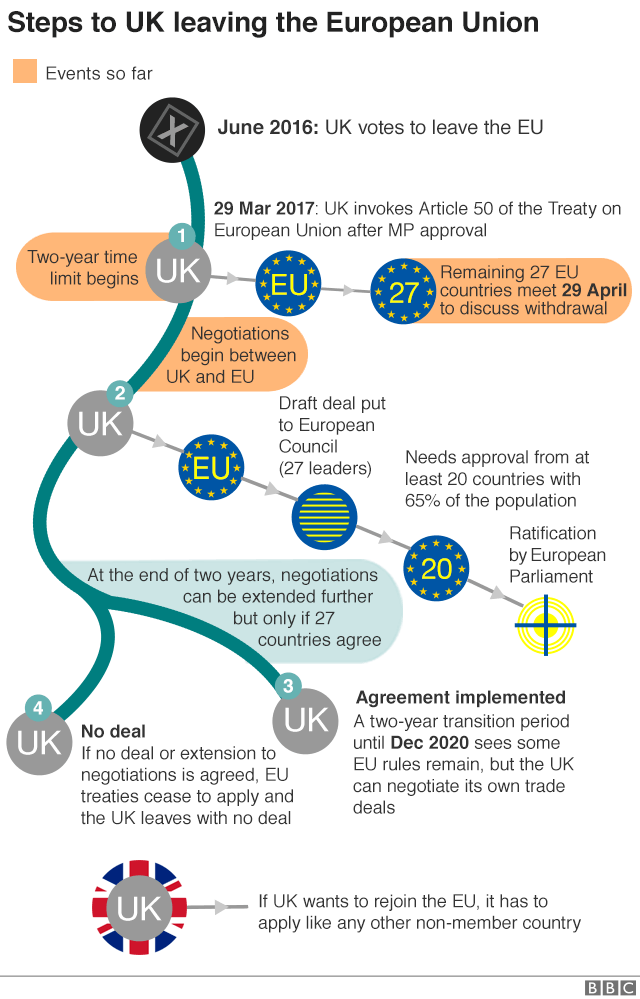You can't serve both Trump and America
The tradition on this blog (lapsed last year when both Christmas and New Years were Mondays and I decided not to post) is to do an annual lookback near New Years. The Yearly Sift picks out themes that have played out through the year, collects links to some noteworthy posts, and looks at the blog's popularity and readership.
And I also do an abbreviated weekly summary, because the news never stops.
The story that dwarfed all others this year
For the last two years we've had a president who fundamentally does not believe in democracy, and who has no loyalty to either the Constitution or the traditions of American governance that have built up around it. That hasn't happened in a long, long time, or maybe ever. (You can argue about Nixon or maybe Jackson, but no one else comes close.)
So this has been a time of unique danger to the American Republic. And although we've been taking some damage, we've also been hanging on.
In my view, the main thing that has restrained Trump so far has been his need to maintain Republican support in Congress. And the main thing that has restrained Republicans in Congress has been fear of what might happen in the midterm elections. If, after everything we've seen these last two years, 2018 had gone in their favor, I think Trump would be off to the races. Mueller would be fired, laws on the books would be more openly violated, and courts that tried to get in the way could be defied.
We dodged that bullet. Democracy is far from out of the woods -- it won't be until Trump is safely out of office, and maybe not even then -- but we're still on a path that has a hope of emerging from the woods. I make that case in more detail in the featured post "The Story that Really Mattered This Year".
Additional comments on 2018
Little by little, the media has been figuring out how to deal with Trump's lying, which is a different thing entirely than the spinning of previous administrations of either party. Greg Sargent explains:
The key point here is that Trump is not engaged in conventional lying. He’s engaged in spreading disinformation.
Previous administrations would emphasize favorable facts and cast them in the best possible light, even if less favorable facts were more relevant and a less rosy frame made more sense. Trump, on the other hand, repeats blatantly false statements, in hopes of wearing down the fact-checkers. Eventually you get tired of debunking what he says about voter fraud or immigrant crime or the Wall, and he keeps saying it.
At the beginning of the Trump administration, the media arguably helped his disinformation campaigns. Trump would make an outrageous claim, and the headlines would repeat it: "Trump claims X" or "Trump accuses X of Y" or something similar. Even if the text of the article explained that the charge was baseless, the damage was done; it would stick in people's minds that X had something to do with Y.
It's interesting now, though, to google "Trump" and the phrase "without evidence". Just recently you'd have gotten President Trump Claims Without Evidence That Most Federal Employees Impacted by Shutdown Are Democrats, Trump claims without evidence that new migrant caravan is forming, and Trump, without evidence, blasts social media companies over his followers. Similar phrases will get you similar results: Trump rages at Twitter with baseless claim that it is tampering with his followers because of political bias. More and more, news outlets are leading with the fact that Trump is just making stuff up.
We saw how last year's tax cut played out. At the time, the Republican argument was that it would stimulate growth across the economy, create good-paying jobs, and eventually pay for itself. The Democratic argument (and mine) was that it would raise the deficit, the increase in growth would simply be the ordinary pop that comes with a big deficit, and most of the money would go to stockholders with very little for workers.
The data is not totally clear yet, but the Democratic predictions are looking much stronger.
The State of the Sift
I think about the influence of the Sift in two ways: Its breadth is the number of people who read a Sift post sometime during the year, whether the name of "The Weekly Sift" sticks in their heads or not. Its depth is the number of regular readers, especially the ones who read it faithfully every week.
Neither number is something I can directly measure, but some of the things I can measure provide some indications. For the last several years, those arrows have pointed in opposite directions: Measures of breadth are down and measures of depth are up.
Breadth measures include the number of hits the most popular posts get, and the total number of hits at weeklysift.com. Those measures peaked in 2014-2015. The two most popular Sift posts (together amounting to just under 1 million of the 2.5 million hits the blog has gotten since I moved it to weeklysift.com in 2011) are 2014's "Not a Tea Party, a Confederate Party" (545K) and 2012's "The Distress of the Privileged" (432K). By contrast, the most popular new posts in 2018 were "Speaking in Code: Two phrases that no longer mean what they used to" and "The Media isn't 'Polarized', it has a Right-Wing Cancer", both of which got a little over 2.8K hits. In fact, "Not a Tea Party" continued to leave all new posts in the dust, getting 17.6K hits in 2018.
Total hits at weeklysift.com peaked at 782K in 2015 and have been down every year since: 352K in 2016, 248K in 2017, and 198K with a day to go in 2018. (If I have a good day, it could get over 200K.)
Those numbers make it look like the blog is in a death spiral, but the depth numbers point in the other direction. The number of people following the Sift through WordPress (most of whom read posts via email and don't show up in the weeklysift.com figures) is up from 3820 at the end of 2015 to 5304 now. I assume there are other people who read the blog regularly via internet subscription services I don't track. The Sift's Facebook page has 978 followers.
The weekly summaries, I think, are read mainly by my regular readers, and their hit totals have been relatively stable, somewhere in the 300-400 range every week. Hits on the home page are a mixed measure of breadth and depth: They peaked at 100K in 2015 and 101K in 2016, then fell to 82K in 2017 and 71K in 2018. (All of those numbers are much higher than the 44K of 2014.)
From what I've read about other web sites (including nationally known ones like TPM), I've come to believe that this is a general phenomenon that doesn't have much to do with me personally: The age of the non-commercial small blog that launches viral posts is over, killed off by algorithmic changes at the big social media platforms like Facebook. It is much harder for a post to go viral than it was in 2015. Facebook et al don't want to popularize your blog for free; they want you to buy advertising. (I haven't done that. Buying advertising would inevitably lead to selling advertising, and I don't want to go there.)
In some ways, all of these numbers are ephemeral. When someone clicks on a viral post, there's no way to know whether they actually read it. Similarly, I'm sure that some number of the people who "follow" the Sift are watching posts pile up in their Inbox and wishing they had the time to read them. The one measure whose meaning is clear is the number of comments, which is down, but not nearly as much as the hit numbers: They peaked at 1792 in 2016 and are down to 987 in 2018. (That stands to reason; fewer readers mean fewer comments, but regular readers are more likely to comment.)
As I've said in previous years, I'm not inclined to chase popularity by writing clickbait. Instead, my goal every week is to serve my regular readers by screening out the large quantity of meaningless hype in the news, and using the time gained by that to go a little deeper into the underlying themes and patterns. If they share my posts and their friends like them and so on, that's great. But riling people up in ways that would produce a lot of clicks and comments runs exactly opposite to the mission of the blog. It was exciting to have posts that reached hundreds of thousands, but that's not why I keep doing this.
The Sifted Books of 2018
This year I wrote about of Cory Doctorow's Walkaway, Jim Comey's A Higher Loyalty, Joan Williams' White Working Class, Timothy Snyder's The Road to Unfreedom, Ganesh Sitaraman's The Crisis of the Middle-Class Constitution, How Democracies Die by Stephen Levitsky and Daniel Ziblatt, This is an Uprising by Mark and Paul Engler, and Network Propaganda by Yochai Benkler, Robert Faris, and Hal Roberts.
Other people's year-end reviews
CBS does a pretty thorough month-by-month account of the top stories. The Atlantic's Adam Harris sees 2018 as "The Year the Gun Conversation Changed", mainly because the articulate professional-class students from Parkland refused to shuffle off the stage.
The year in pictures: CNN, Washington Post, New York Times , and a five-minute video summary from Vox
https://www.youtube.com/watch?time_continue=3&v=4tJJnC26_uw
But this week everybody was talking about ...
The government has been shut down for more than a week, with no end in sight. (Rep. Louie Gohmert thinks it should stay shut down until either Congress funds a wall or "Hell freezes over".) Trump continues to paint himself into a corner about the Wall, which Democrats don't want to give him.
Mike Mulvaney has implied Trump will take less than the $5 billion that he demanded after the Senate had reached a bipartisan compromise (that Pence had told them Trump would sign). Republicans are selling this as a compromise, but it's not. Suppose I walk up to you and say, "Give me $100" and you say no. If I respond with, "OK, give me $50", that's not a compromise. An actual compromise proposal would include Trump offering Democrats something they want in exchange for funding his Wall. (Opening the government is also not a concession; Trump would just be undoing damage he caused.) So far, Trump has offered nothing in exchange for what he wants.
Meanwhile, the Coast Guard will stop paying people as of today. What could go wrong?
My sense is that Trump or Senate Republicans won't budge until their base starts seeing that government does important things other than fight wars. Until then, the Gohmerts sound really strong talking about Hell freezing over.
Elizabeth Warren is in the race for 2020. Of all the candidates, she is the one that raises the most hope and fear in me. I think she'd be the best president, because she is the one who best understands what working-class life is really like. But I also worry that we'll spend two years dealing with the Pocahontas smear rather than talking about what's important.
Trump visited troops in Iraq for a few hours the day after Christmas, his first visit to troops stationed in a combat zone.
One complaint that Fox News commentators often make is that in liberal eyes, Trump literally cannot do anything right, so he gets criticized for things that other presidents would be cheered for. (Last week, for example, I criticized Trump for the way he implemented a policy -- disengaging from Syria and Afghanistan -- that I agree with in the abstract. How horribly biased of me.)
The Iraq trip illustrates the reason for that apparent "bias" against Trump: He literally cannot do anything right, even comparatively simple stuff from bringing to our troops abroad the message that people at home appreciate what they're doing to talking to a 7-year-old about Christmas. The Chicago Tribune's Steve Chapman sums up:
Each day is a chance for Trump to expose his incompetence at every element of his job. Each day, he seizes the opportunity.
In Iraq, Trump held what was essentially a partisan political rally, complaining about the Democrats, signing MAGA hats, and lying about how much he had done for the troops. Previous presidents of both parties have avoided this kind of politicking, because (1) the military is supposed to be apolitical, and (2) when the President addresses troops abroad, he is supposed to represent all of the American people, not just the ones who support him.
And to top things off, he tweeted out a photo of himself with Navy Seals, whose identities are supposed to be secret.
As I have explained before, Trump doesn't grasp that President is a role he fills, one that includes responsibilities as well as powers. Instead, he imagines that he is the President, and that all the powers and prerogatives of the role have become his personal powers and prerogatives. Combined with that, he is the Dunning-Kruger Effect personified: He doesn't know or understand much of anything, but thinks he's a "very stable genius". This makes him unique (and uniquely dangerous) among the presidents of my lifetime.
Federal court ruling: It's unconstitutional to hold people for years without a bail hearing, even if they came into the country illegally.
On average, Republican sabotage of ObamaCare has raised premiums $580 per policy per year. The sabotage varies by state, with Massachusetts and New Jersey avoiding it entirely and correspondingly larger premiums falling on Trump-supporting states.
Foreign Policy gives the background of the Trump/Russia connection. After his Atlantic City casinos failed, no banks would lend Trump money, and he was all but finished as a real estate mogul, But then
Trump eventually made a comeback, and according to several sources with knowledge of Trump’s business, foreign money played a large role in reviving his fortunes, in particular investment by wealthy people from Russia and the former Soviet republics. ... By the time he ran for president, Trump had been enmeshed in this mysterious overseas flow of capital—which various investigators believe could have included money launderers from Russia and former Soviet republics who bought up dozens of his condos—for a decade and a half.
and let's close with something humorous
Among the looks back at 2018 was one by Dave Barry.




